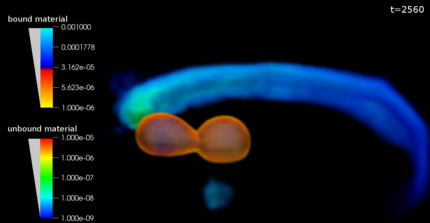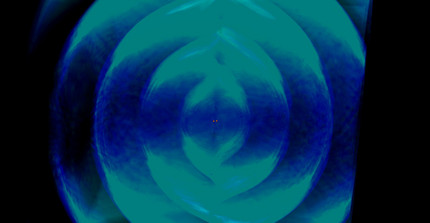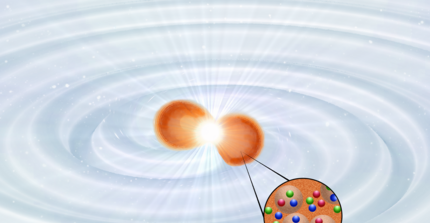The few known analytic solutions of Albert Einstein's Theory of General Relativity describe only very few special situations. If we are interested in the truly relativistic regime, we must turn to computer simulations to obtain numerical solutions. Numerical relativity spans a large range of different topics including mathematical general relativity, astrophysics, numerical methods for partial differential equations, computer programming, and simulation science.
In this lecture, we will cover the basics of numerical relativity (3+1-decomposition, hyperbolic formulations of the Einstein Equations, gauge choices, initial data construction, horizon computation, general relativistic hydrodynamics etc.).
We will also cover aspects related to the simulation of compact binaries involving the modeling of binary black hole and binary neutron star systems.
Multi-messenger astronomy combines observations of the same astrophysical source obtained by different observational channels, namely, electromagnetic radiation, gravitational waves, neutrinos, and cosmic rays. Each channel tests different astrophysical processes and reveals different information about the sources.
In this course, we will cover known multi-messenger sources: solar flares, supernova explosions, binary neutron star mergers, and blazars. We will focus on the interpretation of the recently detected binary neutron star merger observed as a gravitational wave source (GW170817), a short gramma-ray-burst (GRB170817A), and an electromagnetic kilonova (AT2017gfo). We will discuss the theoretical and experimental background, which is required to understand multi-messenger observations, and we will learn how publicly available software can be used to interpret the observed data.
Within the research seminar of the Theoretical Astrophysics group we discuss ongoing research project of members within our group, have joint seminars with international colleagues, and review important articles that published within the community.



